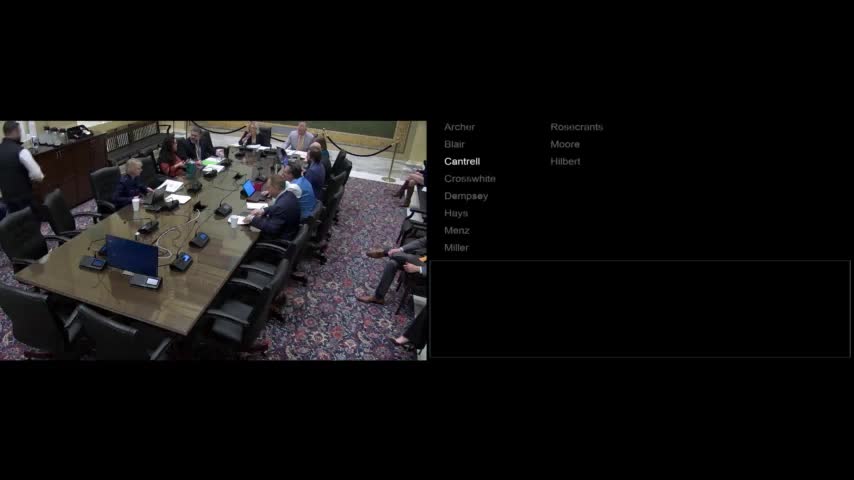Subcommittee adopts fix clarifying ODOT responsibility for curb repairs on state highways
Get AI-powered insights, summaries, and transcripts
Subscribe
Summary
The Transportation A and B Subcommittee adopted an amendment and passed House Bill 1125 to place responsibility for certain curb repairs on the Oklahoma Department of Transportation up to the back of the curb, and corrected a typographical error in the working draft.
Representative Crosswhite Hader, a member of the Transportation A and B Subcommittee, explained and secured passage of House Bill 1125 on a 7-0 voice vote after the panel adopted a technical amendment to the bill’s working draft.
The bill, as explained by Representative Crosswhite Hader, seeks to clarify which government entity is responsible for certain portions of a roadway where a state highway runs through a city or county so that ODOT’s responsibility extends to the back of the curb rather than only to the front. "What I'm trying to do is simply streamline the process, make it clear for our, other government entities, whether it's city, county, whoever it may be, the clarity of who is responsible for what in the part of a road," Representative Crosswhite Hader said.
The committee first adopted a proposed committee substitute (PCS) as a working draft and then approved a textual correction to fix a Scribner’s error. The amendment, moved and submitted by Representative Crosswhite Hader, replaces the word "fill" with "mill" on page 2, line 5 of the working draft; the change was described in the hearing as a typographical correction that does not alter the substance of the bill. The amendment was adopted without objection.
Representative Cantrell asked whether the bill covered repairs to existing curbs when damage occurs, and Representative Crosswhite Hader confirmed the bill applies to repair situations such as a vehicle striking a curb. "That, this is, when a state highway goes through a city or a county or whatever other political subdivision, this is a repair," Representative Crosswhite Hader said, adding that many curbs and adjacent road slabs are monolithic pieces of concrete yet responsibility has been split between jurisdictions.
After discussion closed, staff opened the roll call. Named members recorded as voting "aye" in the transcript were Rosencrantz, Archer, Hayes, Blair and Miller; the committee clerk later announced, "Representative Cross White hater with 7 ayes, 0 nays." The transcript records the outcome as the bill passing out of subcommittee.
The bill references existing administrative rules as the source of the current division of responsibility; the committee testimony said the legislative change would supersede the Administrative Code on this point. The working draft and amendment language focus on construction and repair terminology (for example, clarifying "mill" rather than "fill").
The subcommittee did not identify any new funding or a phased implementation schedule during the hearing, and no external agency approvals were discussed. The bill was returned as passed from the subcommittee for further consideration by the full committee or chamber.
